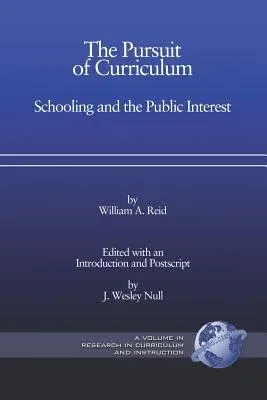William Arbuckle Reid
(Author)The Pursuit of Curriculum: Schooling and the Public Interest (PB) (Revised)Paperback - Revised, 23 March 2006

Qty
1
Turbo
Ships in 2 - 3 days
In Stock
Free Delivery
Cash on Delivery
15 Days
Free Returns
Secure Checkout
Part of Series
Research in Curriculum and Instruction
Print Length
204 pages
Language
English
Publisher
Information Age Publishing
Date Published
23 Mar 2006
ISBN-10
1593115075
ISBN-13
9781593115074
Description
Product Details
Author:
Book Edition:
Revised
Book Format:
Paperback
Country of Origin:
US
Date Published:
23 March 2006
Dimensions:
23.39 x
15.6 x
1.09 cm
Genre:
Education
ISBN-10:
1593115075
ISBN-13:
9781593115074
Language:
English
Pages:
204
Publisher:
Weight:
290.3 gm

